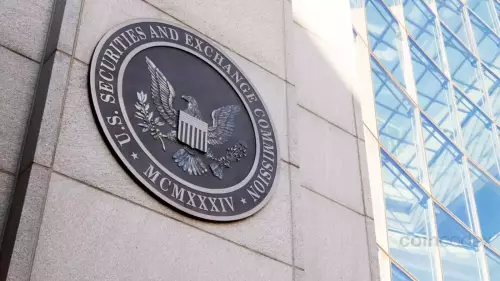 |
|
 |
|
 |
|
 |
|
 |
|
 |
|
 |
|
 |
|
 |
|
 |
|
 |
|
 |
|
 |
|
 |
|
 |
|
Cryptocurrency News Articles
Microsoft Teams Raises Cybersecurity Concerns with Webhook Phishing Threat
Apr 15, 2024 at 02:03 am
Microsoft Teams' incoming webhooks provide a convenient way for users to connect external services. However, recent discoveries have highlighted the potential for webhook phishing, where attackers can create malicious webhooks and share their URLs to gain access to sensitive information. Users can configure incoming webhooks within any channel they have access to and view webhook URLs created by others in those channels. This vulnerability allows malicious actors to create webhooks, share their URLs, and gather confidential data.

Microsoft Teams: Cybersecurity Concerns Raised as Webhook Phishing Emerges
By Gupta Bless
Introduction
The widespread adoption of Microsoft Teams has made it a prime target for malicious actors seeking to exploit vulnerabilities. A recently discovered issue involving incoming webhooks raises serious cybersecurity concerns and underscores the need for heightened vigilance.
Vulnerability and Risk
Incoming webhooks in Microsoft Teams allow users to receive messages and notifications from external applications. However, a flaw has emerged that grants users the ability to configure webhooks within any accessible channel. This exposes users to the risk of phishing attacks, as malicious actors can craft webhooks that impersonate legitimate applications and trick users into providing sensitive information.
Access and Exposure
The situation is further exacerbated by the fact that users can view webhook URLs created by others in channels they have access to. This broad visibility allows attackers to identify and target users with phishing webhooks. Additionally, the ability to generate emails from webhooks opens up a potential avenue for email-based phishing campaigns.
Impact and Consequences
If left unchecked, this vulnerability could have severe consequences for organizations using Microsoft Teams. Phishing attacks can lead to the compromise of user credentials, sensitive data breaches, and financial losses. The potential impact on business operations and reputation cannot be underestimated.
Mitigation and Remediation
To mitigate this threat, Microsoft has issued a security advisory and provided recommendations for users. Users are advised to:
- Be cautious of emails that appear to come from webhooks.
- Avoid clicking on links or providing sensitive information in emails related to webhooks.
- Regularly review the webhook configurations in accessible channels and disable any suspicious ones.
- Implement multi-factor authentication (MFA) to enhance account security.
Conclusion
The discovery of webhook phishing vulnerabilities in Microsoft Teams serves as a stark reminder of the evolving cybersecurity landscape. Organizations and users must remain vigilant and adopt proactive measures to protect against phishing attacks. Microsoft's swift response and ongoing efforts to address the issue are commendable, but it is ultimately up to individual users to take responsibility for their online security. By following recommended best practices and staying informed about emerging threats, we can collectively minimize the risks associated with this vulnerability and ensure the safe and secure use of Microsoft Teams.
Disclaimer:info@kdj.com
The information provided is not trading advice. kdj.com does not assume any responsibility for any investments made based on the information provided in this article. Cryptocurrencies are highly volatile and it is highly recommended that you invest with caution after thorough research!
If you believe that the content used on this website infringes your copyright, please contact us immediately (info@kdj.com) and we will delete it promptly.






























































